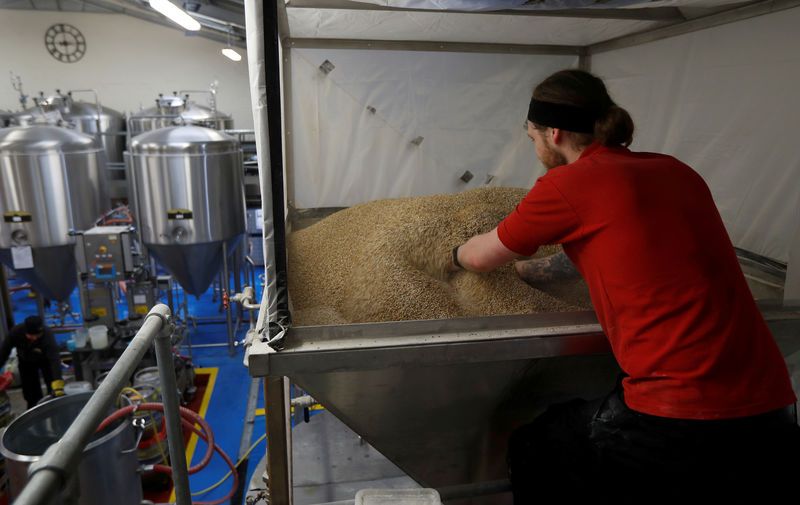By Nigel Hunt and Michael Hogan
LONDON/HAMBURG (Reuters) - Sales of British malting barley to European Union brewers and malt producers for delivery after Brexit have come to a virtual stop because of uncertainty about future trading relations.
The standstill in so-called forward export sales for delivery in coming months means UK farmers are not able to take advantage of current attractive prices and are losing business to other EU suppliers, traders said.
"They have essentially lost market access at this point of time for forward sales which is frustrating because commercially it is the right thing to do, forward prices are high," said Jack Watts, chief combinable crops adviser with the National Farmers Union, which represents farmers in England and Wales.
Britain, which counts barley as its second most important arable crop after wheat, is due to leave the EU on March 29 and there is still no final deal on future trading terms.
Forward sales of malting barley for delivery after this date have not materialised, traders said.
"It is certainly true that German importers are not currently buying British malting barley. This is because of the uncertainty with Brexit, or with no Brexit or whatever," one German malting barley trader said.
"The great problem is that it is not currently possible to make a commercial calculation because it is not known if malting barley supplies you buy from Britain now for delivery in later months will face some form of EU import tax/customs duties," the trader added.
"There is a commercial risk which is too large to take.”
Traders said German importers had transferred their buying interest to other EU suppliers, especially France, which had a big crop last summer.
"If there is a very hard Brexit with full EU import duties on British barley, Britain will (also) have to compete against other outside suppliers such as Argentina," one trader said.
One of the hottest summers on record in west Europe last year combined with drought to cut malting barley crops in regions including Germany, Poland and Scandinavia, boosting demand for supplies from exporters such as Britain and France.
Another German malting barley importer confirmed there had been no demand for UK supplies despite Germany having a large import need.
"Advanced import purchases of British malting barley are not possible in this environment and so purchases are not being made," the importer said.
British traders said forward sales of other grains such as wheat to the EU were also at a standstill, although that was largely driven by a poor crop last summer.

"It has not really mattered so far for exports other than malting barley," one exporter said, adding a poor wheat crop last summer meant Britain was a net importer this season and so prices were driven by the domestic market.